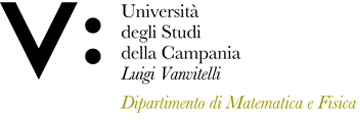Laura VERDE
Insegnamento di PROGRAMMAZIONE ORIENTATA AGLI OGGETTI
Corso di laurea magistrale in MATEMATICA
SSD: INF/01
CFU: 8,00
ORE PER UNITÀ DIDATTICA: 72,00
Periodo di Erogazione: Primo Semestre
Italiano
| Lingua di insegnamento | ITALIANO |
| Contenuti | Principi di progettazione e programmazione orientata agli oggetti. |
| Testi di riferimento | Horstmann Cay. Concetti di informatica e fondamenti di Java. Collana Apogeo Education, 2016. — 846 p. — ISBN 8891617377, 13 9788891617378. |
| Obiettivi formativi | Il Corso intende fornire la conoscenza dei principi di programmazione ad oggetti e loro applicazione al linguaggio Java. |
| Prerequisiti | Fondamenti di Informatica |
| Metodologie didattiche | Il corso prevede ore teoriche (48 ore) in cui verranno illustrate le tecniche di programmazione ad oggetti e i dettagli del linguaggio Java; ed ore (24 ore) in laboratorio in cui verranno presentati vari tool di sviluppo (ad esempio Eclipse) oltreché la risoluzione di esercizi e problemi applicativi. |
| Metodi di valutazione | L’esame si compone di due prove: una prova pratica ed una prova orale. |
| Altre informazioni | E’ previsto il caricamento on-line di materiale didattico, esercitazioni e programmi di esempio. |
| Programma del corso | Paradigma di programmazione a oggetti: |
English
| Teaching language | Italian |
| Contents | Principles of object-oriented programming. |
| Textbook and course materials | Horstmann Cay. Concetti di informatica e fondamenti di Java. Collana Apogeo Education, 2016. — 846 p. — ISBN 8891617377, 13 9788891617378. |
| Course objectives | The course aims to provide knowledge of the principles of object-oriented programming and their application to the Java language. |
| Prerequisites | Fundamentals of Programming |
| Teaching methods | The course includes theory hours (48 hours) in which object-oriented programming techniques and the details of the Java language will be explained; and hours (24 hours) in the laboratory in which various development tools (e.g. Eclipse) will be presented as well as the solving of exercises and application problems. |
| Evaluation methods | The examination consists of two tests: a practical test and an oral test. |
| Other information | Online uploads of teaching materials, tutorials and sample programmes are provided. |
| Course Syllabus | Object-oriented programming paradigm: |








